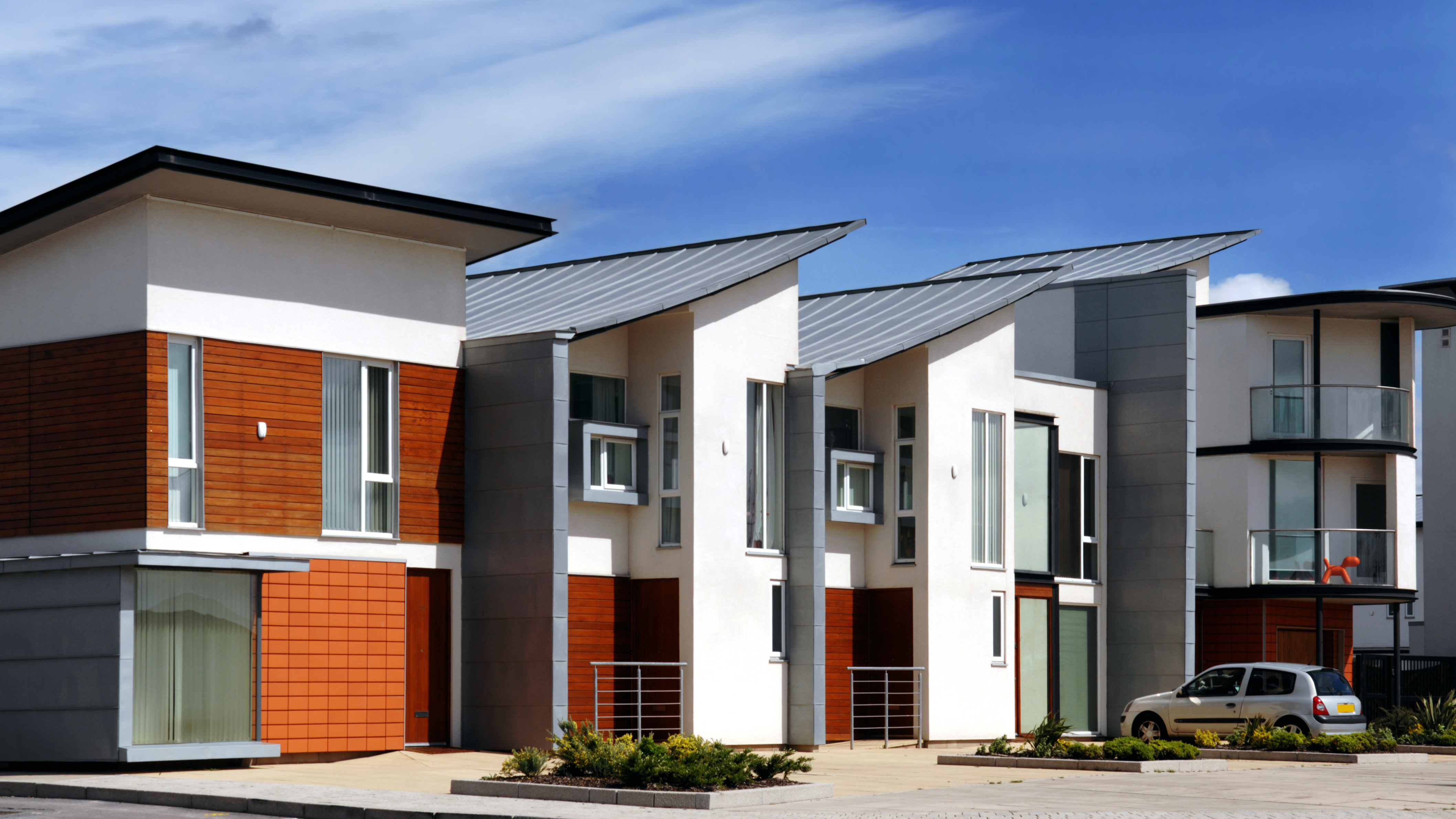New build homes: what you need to know before buying
If you're looking at new build homes with a view to buying, there are several things you need to know about the process that differ from buying older properties

Get small space home decor ideas, celeb inspiration, DIY tips and more, straight to your inbox!
You are now subscribed
Your newsletter sign-up was successful
If you're viewing new build homes, you've probably wondered how much the process differs from buying an old property. The short answer is: quite a bit. To start, you will be committing to a property that might not have been built or finished as yet. And while there are obvious advantages to choosing a property no one has lived in before, including being able to choose your fixtures an fittings, it can (understandably) make some buyers nervous.
It goes without saying that you'll need to look into the best mortgage deals well in advance, and ideally secure a mortgage in principle. But there are other things to bear in mind, too. As you remain involved with your future home’s development from the outset, there are naturally an additional number of considerations. From your first meeting to initial plans and excitedly collecting your keys, these stages are critical, requiring your informed attention. Granville Developments’ managing director Matthew Firth offers his expert tips on what you'll need to consider when buying a new build.
- Find out more about getting a mortgage in principle in our guide
1. Do you research
It's very important to get a look and feel of comparable properties by the developer you're thinking of approaching, so do your research, and visit similar properties/developments that have been completed. Never just rely on the promotional brochure. Also, not all developers are equal when it comes to communication and after care once you've completed the purchase, so make sure you trawl the web for reviews, or, better still, try to speak to someone who has bought one of their properties.
2. Establish contact with the developer
Once development plans have been approved, these will be viewed by the developers. Some will choose to commence work immediately, whilst others may take some time to begin; it’s vital that buyers make early contact with the site’s developer, allowing for crucial discussions to take place before building commences.
It typically takes around six months to build and complete a new home, but this time frame varies. While your home might be the first to have been completed, there may be ongoing building work surrounding you.
Alternatively, you may wait a little longer, moving into a development that’s almost, if not completely, finished. Some developments can continue for several months after the first homes are completed, but experienced developers should ensure that this doesn’t impinge upon your enjoyment of your new home.
3. Choose your home as early as you can
If possible, it’s a good idea to select your home earlier rather than later, as this allows for more flexibility and time to request changes. For example, you may be able to ask for changes to elements of the interior layout. Properties with great views get snapped up quickly, too, so if you want a flat that overlooks the local park, get in there early.
Get small space home decor ideas, celeb inspiration, DIY tips and more, straight to your inbox!
4. Pay the reservation fee and exchange contracts
Once the buyer has chosen their plot on a development, the developer will request a reservation fee. This could range between £500 and a few thousand, a proportionately refundable amount that will be deducted from the property’s purchase price once the build is complete.
A developer may also ask for the details of the buyer’s chosen solicitors who is instructed to act on the buyer's behalf, organising all necessary legal paperwork to formalise the purchase by way of an exchange of contracts, usually within four to six weeks after your reservation has been made. Whilst it is sensible to obtain a few quotations from local solicitors, often developers will have a suggested panel of solicitors who have potentially already been through the development contracts and papers; they can make the process much less stressful for the buyer.
5. Allow for a full day to discuss your preferences
After contracts have been exchanged, the home builder will likely invite the buyer to their offices, development, or the show home, to start their choices process. This gives the buyer an invaluable opportunity to say what they would and wouldn’t like, for example selecting specific fixtures and fitting preferences.
Some developers will offer these options as incentives, where a charge would usually be applied. This process could take hours or all day, depending on how many features you’d like to discuss and ultimately how long you need to make these decisions.
6. Make a snagging meeting appointment
The development site’s sales/estate agents will finally run through a series of meetings with the buyer, carefully examining various aspects of the build before organising a snagging meeting. This snagging meeting will usually take place up to a couple of weeks before completion, as the buyer isn’t usually allowed to visit their property while construction is underway.
A snagging meeting is an opportunity for the buyer to identify any potential errors or defects, ranging from cosmetic to more concerning items. Any problems will be itemised and listed, with the builder completing all subsequent repairs in a timely fashion. These are generally attended to prior to the completion of the transaction and the buyer getting the keys to the brand-new home.
More property related reading:
Anna is a professional writer with many years of experience. She has a passion for contemporary home decor and gardening. She covers a range of topics, from practical advice to interior and garden design.